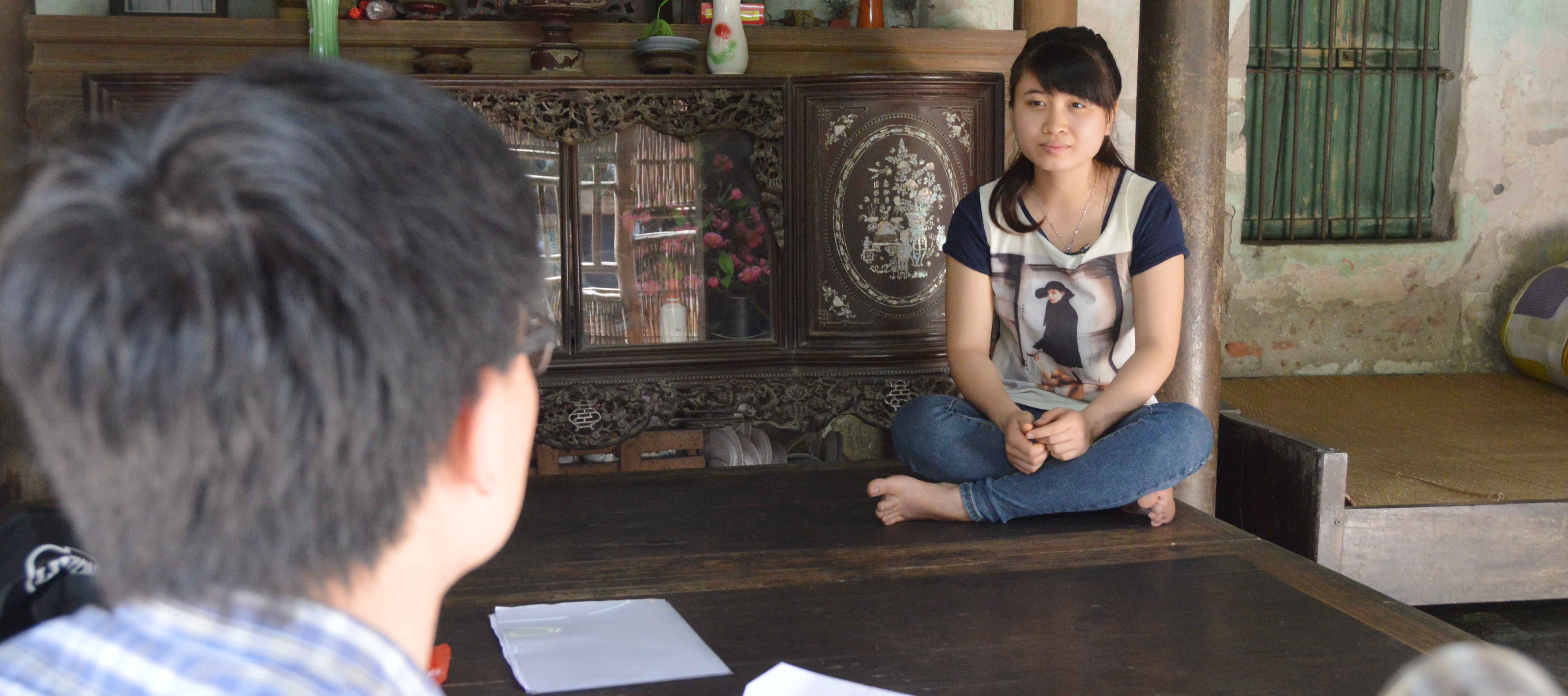
09 Mar Exploring Asian Futures (blog by Fridus Steijlen)
As 2014 came to an end, I began a four-week tour of Southeast Asia, taking in Jakarta, Manila, Hanoi and Singapore. Together with young local researchers, I interviewed 21 young people aged 18 to 20 about their lives, hopes and ambitions for a pilot project called Sharing Asian Futures. It was an amazing experience both working with the local researchers and talking with the youngsters.
During my travels, I found myself memorizing the interviews according to the interviewees’ characteristics. I recalled them as ‘Marc the blogger’, ‘Jennylyn the careful worker’, ‘Boi the economist’, ‘Khalid the gamer’ and so on. But I soon realised that defining them by just one characteristic did not do justice to their whole story – there was so much more to say about their lives and experiences.
I became interested in how much society is reflected in their life experiences, including their hopes and fears for the future. It was, for example, the Indonesian youngsters who were most concerned with developments in the Middle East and how this would affect their own society. The Muslim interviewees in particular were concerned with how the Syrian conflict would change other countries’ views of Indonesia as the largest Islamic country, while the Christian respondents were thoughtful about the impact on inter-religious relations at home.
By contrast, all the interviewees in Manila talked about the issue of overseas Filipino workers. Almost all of them had experienced absentee adults in their family and, although grateful for their sacrifices, the youngsters experienced a lack of intimacy and close contact with their absent relatives. It made them extra motivated to study, but at the same time they were not sure they would be able to escape the same fate. In Hanoi, it was striking that all the interviewees were cautious about politics and only agreed to join as long as the questions were not political. This was not the only way the state was present in their experience, some of the interviewees’ futures were also closely connected to trajectories that the party and the state had to offer.
Singapore was a special experience. Given the political and economic power and stability of the city-state, I expected the interviewees to be very confident about their future. I was wrong. They were in fact very uncomfortable about their future and most stressed about their educational possibilities. They worried about foreign competition in the Singaporean labour market and were not sure they would be able to maintain their living standards as they grow older. Luckily, I had the opportunity to discuss some of these findings with a colleague in Singapore, who explained that the Singaporean government wants to increase the population. Because of the low birthrates among Singaporeans, the government has turned to encouraging middle class migrants, who the Singaporean youngsters see as strong competitors. At the same time, the government is also designing laws to make it possible for elderly parents to use the courts to force their children to support them financially. Sure enough the kids of today doubt whether they will be able to pay for their own household as well as that of their parents in the future.
The Sharing Asian Futures project is still a pilot and we have not even started to fully analyse the interviews yet. But it has already shown just how interesting and significant it is to interview young people from 18 to 20 years old. These are people who stand on the threshold of fully taking control of their lives, having just left behind the life-stage where family, school and the state has modeled them. With such experiences still fresh in their minds, we can read such societal influences through their stories.




No Comments